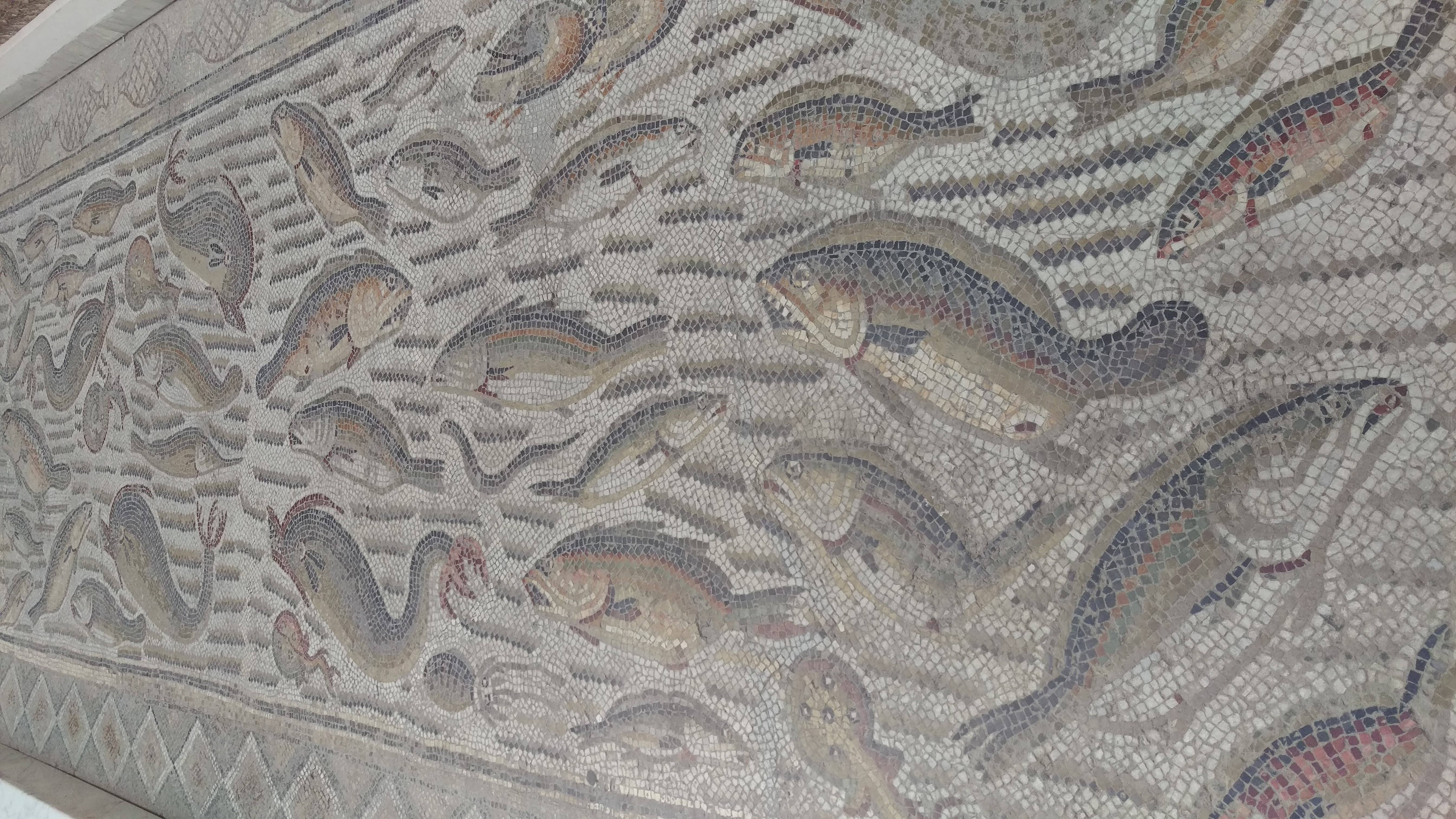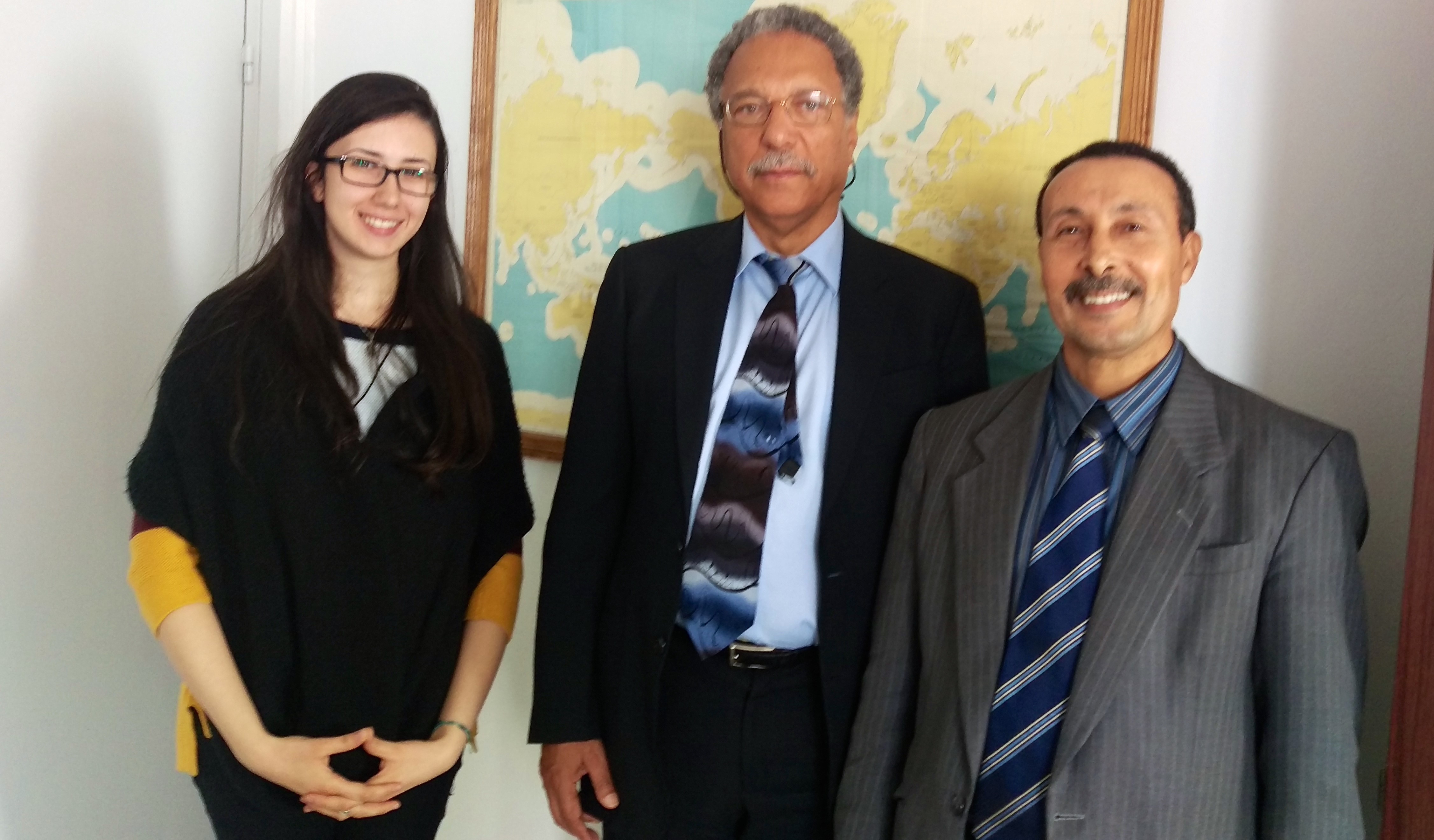Tunisia is the southern Mediterranean country where the events collectively known as the “Arab Spring” started in 2011, and the only country where these events lead to a democratic outcome, for which four major Tunisian political groups recently received the Nobel Peace Prize.
Between late November and early December 2015, Daniel Pauly went to Tunis, the capital of Tunisia, for a period of 5 days, to present lectures and to meet researchers and Tunisian government representatives working on fisheries and marine resources conservation. Dr. Pauly was accompanied by his Tunisian graduate student, Myriam Khalfallah, who co-organized the lectures and the meetings. This visit aimed not only to present the catch reconstruction results for Tunisia and the world, but also to assemble a team of Tunisian experts to improve and update the reconstruction work done for Tunisia.
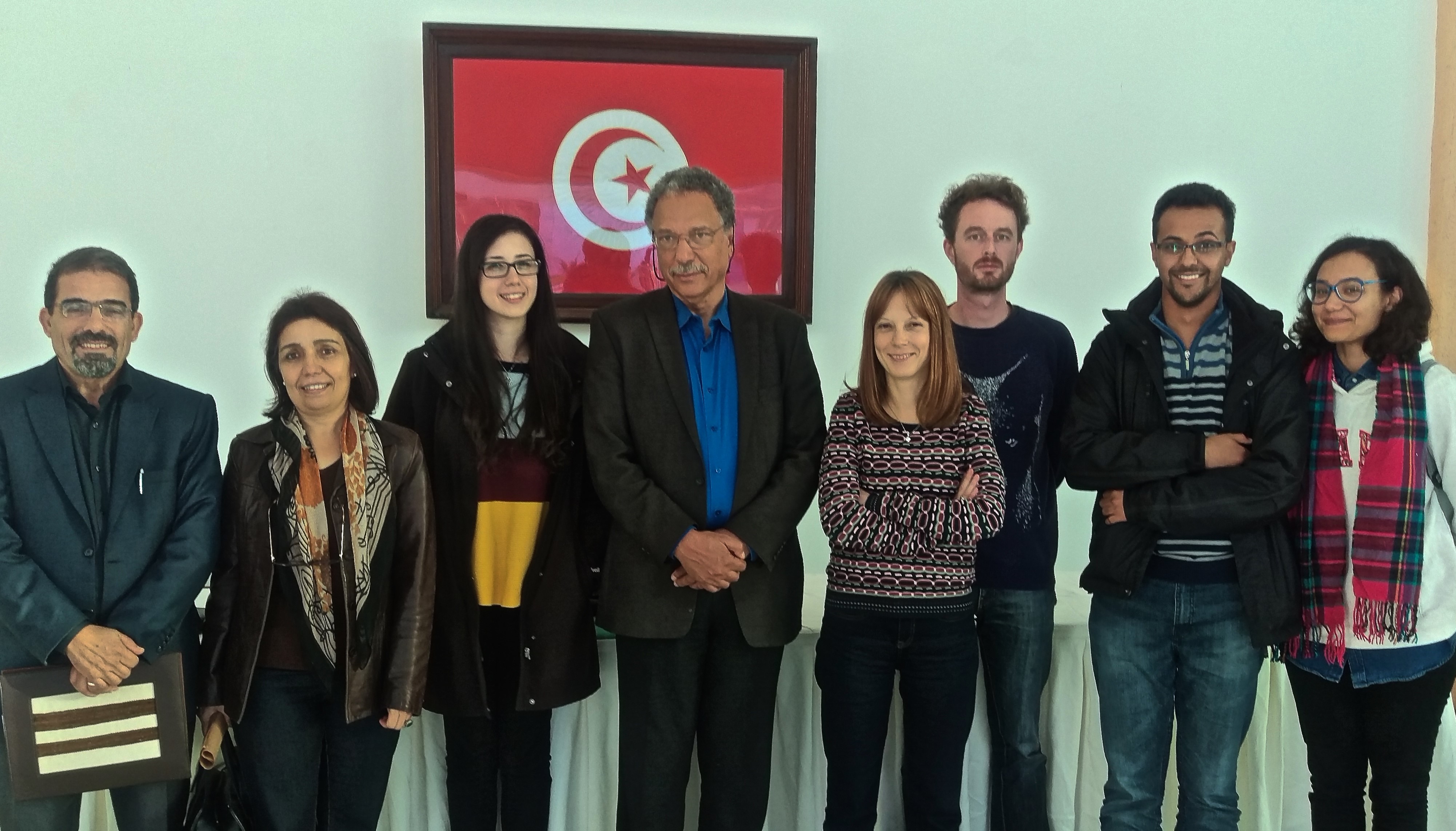
From Left to right: Mr. Mohamed Salah Romdhane (INAT/UR03AGRO1), Mrs. Amel Jenhani (INAT), Myriam Khalfallah, Dr. Daniel Pauly, Dr. Frida Ben Rais-Lasram (INAT/ UR03AGRO1/GANBAS), Dr. François Guilhaumon (IRD), Khaled Abdou (INAT), and Mouna Messai (INAT).
On the 30th of November 2015, Dr. Pauly and Myriam Khalfallah visited the Fisheries Department of the National Agronomic Institute of Tunisia (INAT), where they met senior researchers and graduate students of the Research Unit for Ecosystems and Aquatic Resources (UR03AGRO1). This meeting led to an agreement on future scientific collaborations; notably, with Dr. Frida Ben Rais-Lasram, one of the senior researchers who previously collaborated with the Sea Around Us on the Tunisian catch reconstruction, and who also co-organized Dr. Pauly’s lecture at INAT. This lecture, titled “Fisheries and Global Warming, and their Effects on Marine Ecosystems”, occurred later that day at the auditorium of the institute, in the presence of its Director. Around 60 people, from students and professors to government representatives, fishers, and NGOs representatives, attended the lecture, which was followed by a lively debate on the effectiveness of fisheries management in Tunisia.
On the 1st December 2015, Dr. Pauly gave a lecture at the National Institute of Marine Sciences and Technologies (INSTM) to a public of around 50 researchers, and governmental and fisheries institutions representatives. The conference, titled “Appropriate approach for the management of Mediterranean fishery resources,” sparked another debate on the future of fisheries and aquaculture in Tunisia. Later in the day, the Director of INSTM gave Dr. Pauly and Ms. Khalfallah a tour of its premises, followed by a meeting with a dozen researchers and graduate students from the different units of the institute. As a result, many of these researchers and students expressed their interest in collaborating with the Sea Around Us.
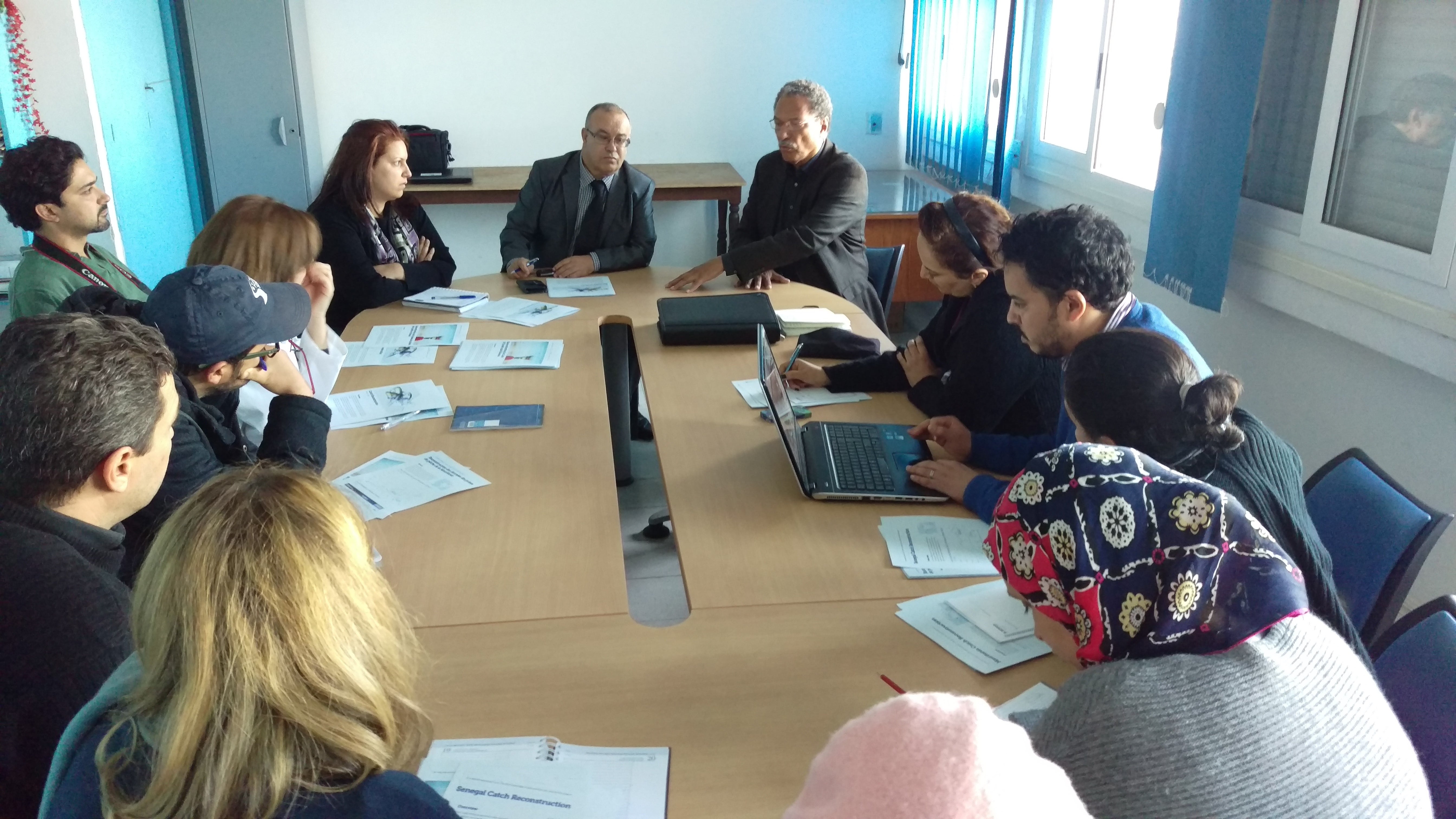
Meeting with graduate students and researchers at the INSTM with the presence of Mr. Hechmi Missaoui, director of the INSTM
The next day was spent – in part – on a visit to the National Bardo Museum, where on March 18, 2015, terrorists murdered 21 tourists, and where, consequently, there were still few visitors. This museum is renowned for its collection of Roman mosaics, the largest in the world, and of which a large number show marine animals and fishing scenes.
Finally, on the last day, Dr. Pauly and Ms. Khalfallah visited Mr. Youssef Chahed, the Tunisian Secretary of State (i.e., vice-minister) for Fisheries. Dr. Pauly commented on the catch reconstructions of the Sea Around Us for Mediterranean countries, and expressed his interest in working with Tunisian fisheries research institution on improving and updating this work for Tunisia.
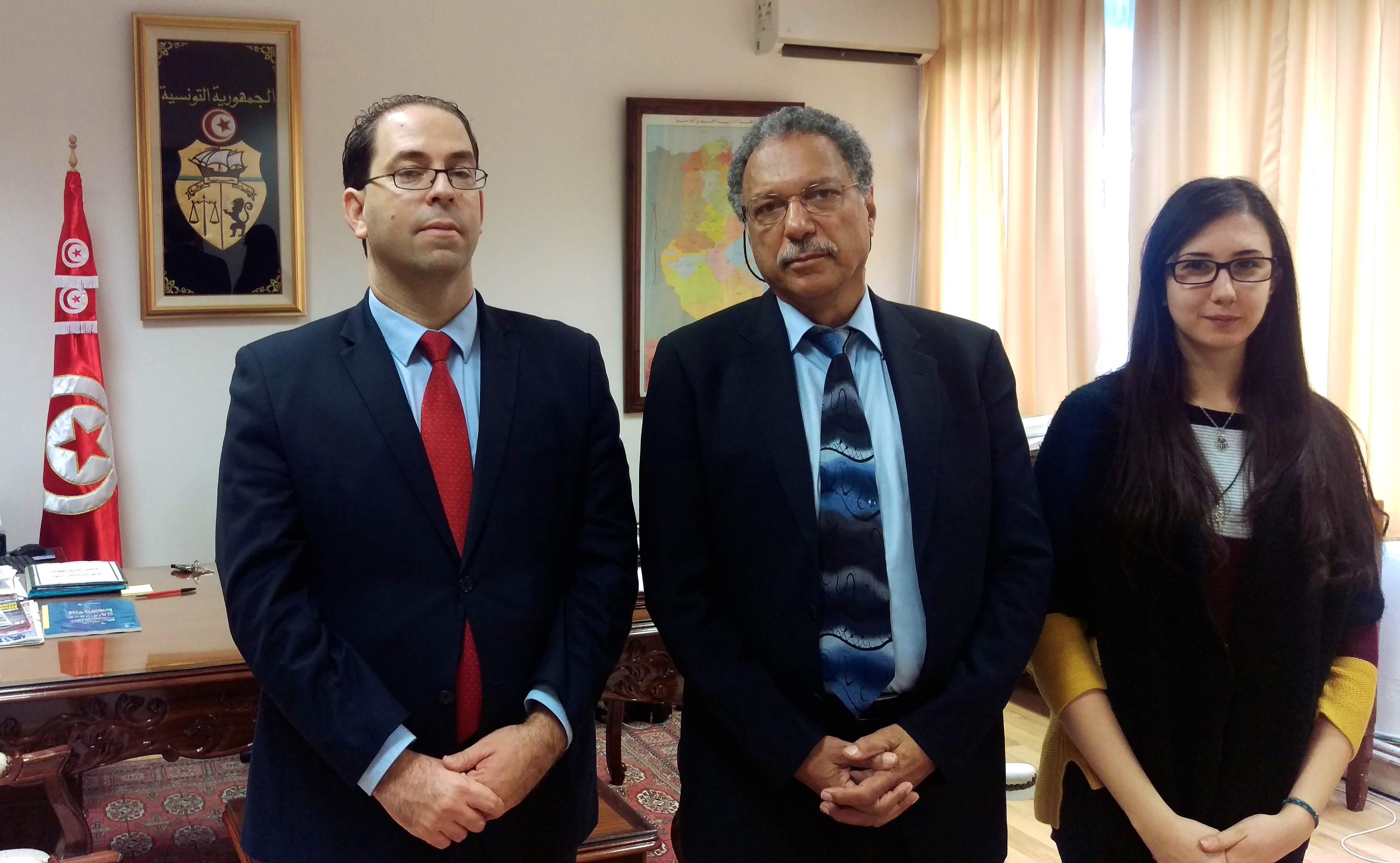
From left to right: Mr. Youssef Chahed the Tunisian secretary of state of fisheries, Daniel Pauly, and Myriam Khalfallah
Tunisia is, with Malta and Hong Kong, one of the rare countries to explicitly use what may be called ‘correction coefficients’ to account for fisheries catches that are not visible to government personnel sampling port landings. These coefficients are different for each fishery and they are applied to the reported catch in order to take into account the unreported catch, i.e., unreported commercial and subsistence catches. However, these coefficients, which were first estimated in the 1970s, were not updated since. Catch reconstructions, which estimate the unreported components of fisheries, provide an approach to update these coefficients. Of course, such work cannot be completed without the help and involvement of Tunisian experts.
Mr. Chahed was very interested in the potential of this work, and he encouraged the Sea Around Us to establish formal arrangement with Tunisian fisheries research institutions to pursue it. Also, he introduced Dr. Pauly and Ms. Khalfallah to the Director of Fisheries Resources Management of the National Department of Fisheries and Aquaculture (DGPA), who agreed to collaborate with the Sea Around Us on the updating of the correction coefficients, as a way to improve the Tunisian fisheries statistical system.
Overall, this trip was very productive and had very positive outcomes. A team of Tunisian researchers, graduate students and governmental representative is currently being formed to start working on the catch reconstruction improvement and update for Tunisia.


